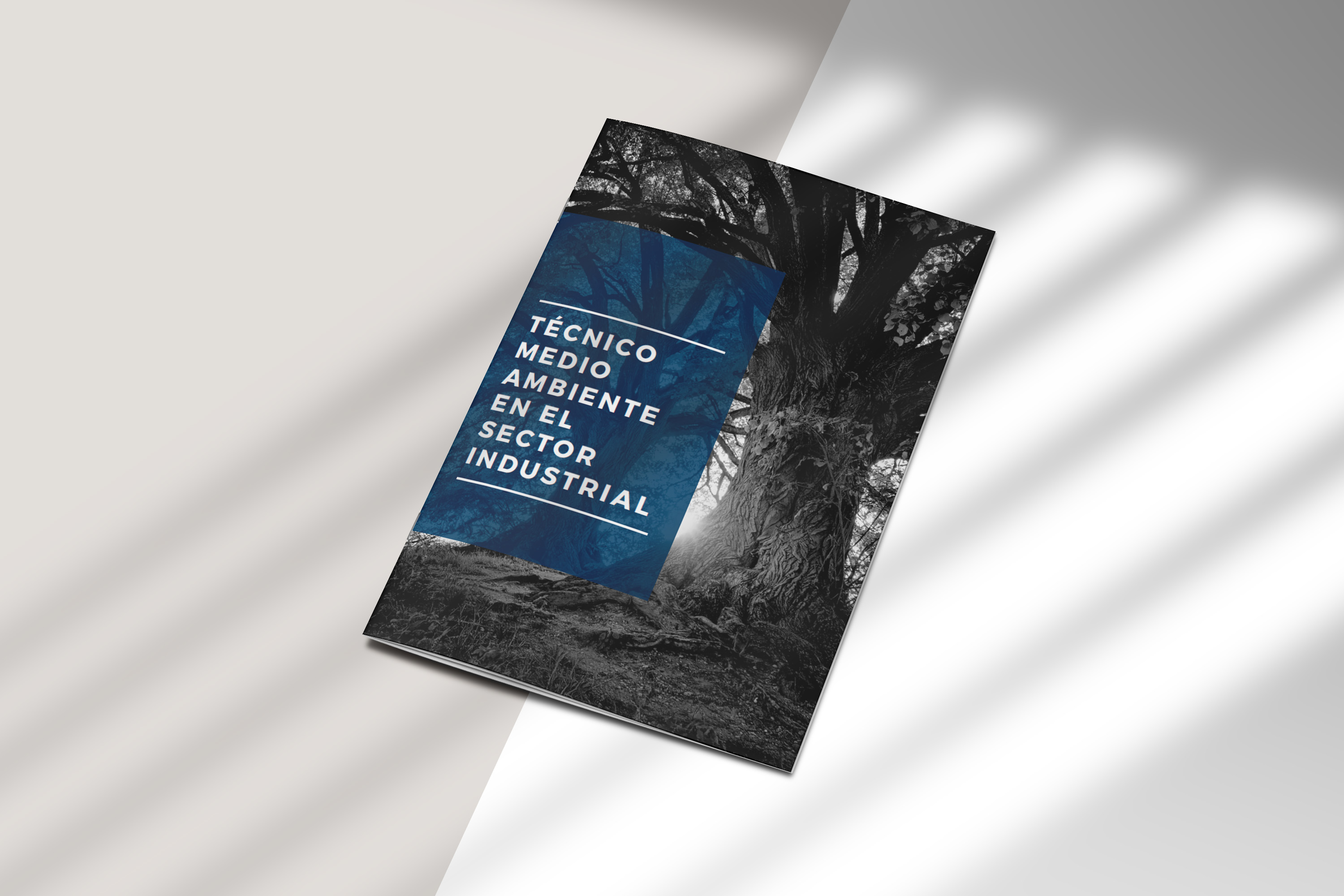Environmental technician in the industrial sector
The Environmental Technician in the Industrial Sector is the figure who is usually in charge of directing, coordinating and controlling everything related to the environment in the company. Specify yourself and be a key part of your company
Interesting information about the course
This course is only available in Spanish
Next Edition
Modality
Duration
Price
Description of the course
The Environmental Technician in the Industrial Sector is the figure who is usually in charge of directing, coordinating and controlling everything related to the environment of the company.
Any industrial activity has an impact on the environment, which from before the industry starts to be built already has environmental regulations to comply with; that is why this profession is so important, since thanks to its correct work many impacts can be avoided, and consequently reduce atmospheric emissions, noise pollution, discharges, waste generation, etc; as well as possible sanctions.
An Environmental Technician of an industrial facility must have a wide range of theoretical and practical knowledge that allows him/her to detect and/or avoid problems that industries may cause to the environment. The industrial environmental field requires people with multidisciplinary and specific training as far as environmental management is concerned. An environmental technician or environmental manager is usually responsible for solving the tasks of those departments related to environmental management in the company (processes, maintenance, production, etc.) and propose solutions.
Responsibilities you will have in a company
Similarly, an environmental technician is usually assigned the responsibility for the correct operation and maintenance of the environmental management system implemented, if applicable, as well as the introduction of preventive and corrective actions and action and improvement plans derived from environmental regulations.
On the other hand, in addition to knowing the current environmental regulations in order to be able to apply them to the company and control their compliance, he/she is usually assigned the responsibility for:
- Manage and evaluate any deviation that takes the company out of compliance with the applicable regulations.
- To propose measures that promote the circular economy of the company.
- Elaborate all documentation and tasks related to the production and management of waste, such as: storage plans, contact with authorized managers, minimization plans, annual management reports, PRTR data communication, etc.).
- Elaborate consumption saving and minimization plans (raw materials, waste reuse, water reuse, etc.).
- Elaborate the environmental risk analysis and elaborate plans to reduce the risk.
- Implement and maintain the company's environmental management system (ISO, EMAS...).
- Design plans for prevention, control and minimization of atmospheric emissions and noise pollution.
- To process permits and authorizations for discharges.
- Drawing up training and environmental awareness plans for workers.
- To know and apply the regulations applicable to any relevant modification to be carried out in the industry (increase with new production lines, new activities, changes in the treatment capacity, new raw materials to be used, etc).
Therefore, the Environmental Technician in the industrial sector can work in any company that carries out any type of industrial activity and must be qualified to develop technical functions in the various activities that make up the environmental sector: water purification, waste treatment, contaminated soil remediation, control and prevention of air pollution, etc.
Request Information
Course Objectives
To provide environmental technicians/managers of the industrial sector with the knowledge and tools to be able to manage all aspects related to the environment in the industry, and therefore reduce as much as possible the risks and possible legal deviations in which the industries may incur.
1
Integrally manage environmental aspects in the industry, reducing risks and legal deviations
2
Detect and adjust non-compliance with environmental regulations, ensuring compliance in the industry sector
3
Apply specific regulations and reduce industrial impacts
Course Syllabus
- Legislative regulation
- National legislative framework
- Introduction
- Basic concepts
- Integrated Environmental Authorization
- Best Available Techniques
- Eper and e-prtr
- Activities not affected by the ippc law
- Practical cases
- Definition and basic concepts
- General eia content and methodology
- Project description and alternatives
- Environmental inventory
- Identification and assessment of impacts
- Preventive/corrective measures
- Environmental monitoring plan
- Procedure / processing
- Case studies
- Applicable regulations
- Administrative competencies
- Basic concepts
- Activities concerned
- Sectoral tools
- Obligations of operators
- Environmental risk analysis
- Financial guarantee
- Responsible declaration
- Case studies
- Atmospheric Pollution
- Emission sources and air pollutants
- Air quality
- Prevention policies and measures
- Noise pollution
- Noise fundamentals
- Application regulations
- Noise control in industry
- Case studies
- Water management as a resource
- Characterization of wastewater
- Water treatment systems
- Authorization of discharges
- Reuse of treated water
- Case studies
- Soil definition and properties
- Soil degradation
- Soil contamination
- Investigation of contaminated soils
- Elaboration of risk analysis
- Remediation techniques
- Potential soil contaminating activities
- Prevention
- Practical cases
- Introduction
- Waste hierarchy
- Waste typology and others
- Typology of waste operators
- Legal requirements for producers or other initial holders
- Waste shipments
- Specific waste management
- Preliminary draft law on waste and contaminated soils
- Practical cases
- Company and environment
- Environmental management systems in companies
- The standard UNO-EN-ISO 14001:2015
- Content of the standard
- Certification of an EMS
- Environmental audits
- Process of an environmental audit
- Case studies
- Lifecycle of a product, process or service vs.
value chain - Origins of the circular economy
- Circular economy standardization
- Circular economy in the industrial environment
- Circular design and production
- Circular use
- Value recovery
- Support for circularity
- Technological and non-technological barriers
- Enabling tools for the circular economy
- Case studies
What does this course provide you?
Specially directed to
- To know, consolidate, update and expand the environmental regulations applicable to the industrial sector
- Detect possible deviations in legal compliance in the environmental field
- To know all the environmental requirements that apply to an industry
- Increase knowledge of the different impacts that an industry can cause and provide tools for their prevention, correction and avoidance
- Take on environmental work that is currently outsourced outside the company
Course Instructors
Frequently Asked Questions (FAQs)
You can contact Cristina Rubio directly: dmtran@fcirce.es





